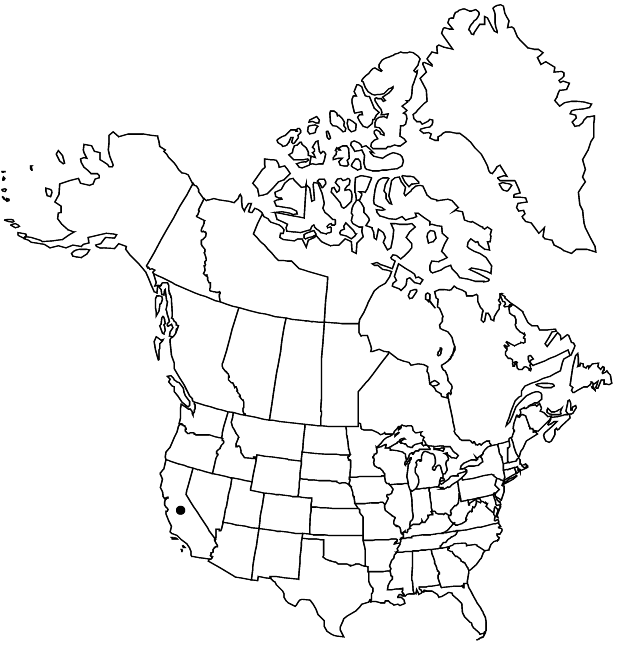Heuchera parishii
in N. L. Britton et al., N. Amer. Fl. 22: 109. 1905,.
Herbs subcaulescent; caudex branched. Flowering-stems 8–40 cm, long-stipitate-glandular, viscid. Leaves: petiole densely long-stipitate-glandular; blade broadly ovate or reniform, deeply 5-lobed, 2–4 cm, base cordate or truncate, lobes rounded, margins dentate, apex obtuse, surfaces long-stipitate-glandular, viscid. Inflorescences dense, (secund). Flowers: hypanthium strongly bilaterally symmetric, free 0.8 mm on abaxial side, 1.2–2 mm on adaxial side, weakly inflated, pink to reddish, narrowly campanulate, 3.5–6 mm, short-stipitate-glandular proximally, long-stipitate-glandular distally; sepals erect, green-tipped, unequal, 0.5–1 mm on abaxial side, 1.5–2 mm on adaxial side, apex rounded; petals spreading, pink, narrowly oblanceolate, unlobed, (unequal, shorter on abaxial side, resembling filaments), 2–3 mm (equaling or longer than sepals), margins entire; stamens exserted 1.5 mm; styles exserted 0.5–1.5 mm, 1.5–2.5 mm, 0.1+ mm diam. Capsules ovoid, 4–6 mm, beaks divergent, not papillose. Seeds black, fusiform, rounded at 1 end, acute at other, ca. 0.9 mm.
Phenology: Flowering Jul–Aug.
Habitat: Shaded rocky places in yellow pine and red fir forest
Elevation: 1500-3800 m
Discussion
Of conservation concern.
Heuchera parishii occurs in the San Bernardino Mountains.
Selected References
None.
Lower Taxa
"full" is not a number.
